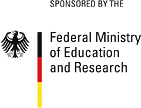Gustavo Herrarte

Universitetet i Oslo
Sosialantropologisk institutt
PhD Candidate
desiguALdades.net: Visiting Doctoral Researcher (01/11/2010- 30/04/2011)
0317 Oslo, Norway
Office hours
Academic Career
| 09/2010 | Doctoral Researcher desiguALdades.net, Berlin, Germany |
| from 08/2005 | PhD candidate in Social Anthropolgy, University of Oslo, Norway |
| 06/2005 | awarded the quota scheme scholarship, University of Oslo, Norway |
| 12/2001 | Master of Arts in Political Science, Iowa State University, USA |
| 08/1998 | Master of Arts in Anthropology, Iowa State University, USA |
| 05/1996 | double major in international studies with concentration on Latin America minor in philosophy |
| 01/1994 | BA in political science, Iowa State University, USA |
| 11/1993 | awarded the Fulbright Scholarship - CAMPUS Program |
| 01/1992 - 11/1993 | Diploma in Political Studies, Unversidad Francisco Marroquín, Guatemala |
Teaching Experience
| 2010 | Teoría Antropológica I, Universidad de San Carlos, Guatemala |
| 2010 | Ciencias Sociales Aplicadas al Desarrollo, Universidad del Valle, Guatemala |
| 2009 | Organización Social I y II, Universidad del Valle, Guatemala |
| 2009 | Antropología del Desarrollo, Universidad del Valle, Guatemala |
| 2007 | Análisis Político, Universidad Landívar, Guatemala |
| 2005 | Compared Political Science, Francisco Marroquín University, Guatemala |
| 2005 | Sistema Político Internacional y Desarrollo, Universidad Landívar, Guatemala |
| 2004 | Política Internacional, Universidad Francisco Marroquín, Guatemala |
| 2004 | Teoría Democrática, Universidad Francisco Marroquín, Guatemala |
| 2004 | Investigación Social II: Métodos Cuantitativos, Universidad Landívar, Guate |
| 2003 | Problemas Políticos Contemporáneos,Universidad Francisco Marroquín, Guatemala |
| 2003 | Ciencia Política Comparada, Universidad Francisco Marroquín, Guatemala |
| 2003 | Investigación Social I: Diseño de Investigación , Universidad Landívar, Guatemala |
| 2003 | Etnografía Guatemalteca, Universidad Landívar, Guatemala |
| 2002 | Partidos Políticos, Universidad Landívar, Guatemala |
| 2002 | Tendencias Políticas Contemporáneas, Universidad Landívar, Guatemala |
| 2001 | Etnopolítica, Universidad Francisco Marroquín, Guatemala |
| 2001 | Teorías sobre el Poder, Universidad Landívar, Guatemala |
| 2001 | Metodos de Investigación Cuantitativos, Universidad Landívar, Guatemala |
| 2001 | Sistemas Políticos Comparados, Universidad Landívar, Guatemala |
The Rebirth of Xa Altepet Xinka: Indigenous Authenticity Discourse and the Invisiblisation of Indigenous Minority Voices
The historical Xinka inhabited most of Southeastern Guatemala. Today, those who consider themselves to be Xinka inhabit small “enclaves” in three counties along the international border with El Salvador. There are around 250,000 people living in these enclaves. During the Guatemalan Peace Process (1985-1996), a Xinka mobilization started and began promoting its identity in order to gain access to sociopolitical life in the country. Surprisingly, the State which traditionally has been considered to be anti-indigenous - promoted their organization by inviting their leaders to participate in important decision making bodies at the national level. Contrary to the State’s position, Mayan leaders and activists have opposed their participation, accusing those that call themselves Xinka to be non-authentic indigenous and of using the indigenous banner in order to attract international donor money. They have declared the Xinka extinct based on the “fact” that the Xinka language is only spoken by a few elders and that there are no “indigenous traits visible in those populations.” The Mayan leadership has been successful in taking away the political spaces gained by Xinka activists. The dissertation advances the argument that the essentialized notion of indigeneity in Guatemala produces the invisibilization of entire populations in the name of the “real” and “authentic” indigenous persona/community. The Xinka case is presented as empirical evidence of this invisibilization, but the argument can be extended to any indigenous minority voice in the country. The “authenticity litmus test” imposed by those indigenous leaders in power positions produces further inequalities among those who are deemed authentic and those deemed non-authentic. Furthermore, sociopolitical practices, which are being used to prevent those deemed unauthentic to gain access to sociopolitical life, are explored. It is argued that Mayan leaders, who currently are monopolizing the production and reproduction of authentic indigeneity in Guatemala, are in a position of “structurally complicity” by promoting political control mechanisms that prevent minority indigenous population to express their own sense of indigeneity.
Journal Articles
Herrarte, Gustavo 2007 Identidad Étnica, Grupos Étnicos y Otros Mitos Sobre la Etnicidad: Interacción, Cognición y Una Visión de Etnicidad Sin Grupos Étnicos. Revista de la Universidad del Valle de Guatemala. Vol. 16: 111-127.
Herrarte, Gustavo 2004 El Esencialismo y las Estrategias de Campañas Electorales de 2003 en Guatemala: El Efecto de la Adopción de Ontologías Sociales Limitadas. El Observador Electoral. Año 2 (7): 43-48.
Herrarte, Gustavo 2002 Crisis de la Mediación de los Partidos Políticos: en Busca de una Representación Sociopolítica. Revista Jurídica. Vol. 4, Pags. 171-181.
Herrarte, Gustavo 1998 In Search for Peace: a Guatemalan Story. Sketch. Vol. 63 (1):
Herrarte, Gustavo 1998 En Busca de un Nuevo Paradigma para el Estudio del Conflicto Social en Guatemala. Aportes. June: 35.
Book Chapters
Herrarte, Gustavo 2007 La Resolución de Conflictos en Tres Comunidades Rurales: Un Estudio Etnográfico. En Arbitraje Agrario … Una Alternativa para la Paz. Editado por la Secretaría de Asuntos Agrarios de la Presidencia de la República de Guatemala. Pags. 101-164. Guatemala, Guatemala: SAA.
Herrarte, Gustavo 2003 Violencia y Educación: La Relación entre Cultura y Violencia en el Sistema Educacional de Guatemala. En Un Llanto ante la Sociedad: La violencia en el Sistema Escolar. Editado por Eduardo Enrique Sacayón Manzo. Guatemala: IDEI.
To be published
Herrarte, Gustavo 2010 El Libro de los Consejos: Tradición Oral de Nuestros Abuelos. Guatemala, Guatemala: Fundación Paiz.


